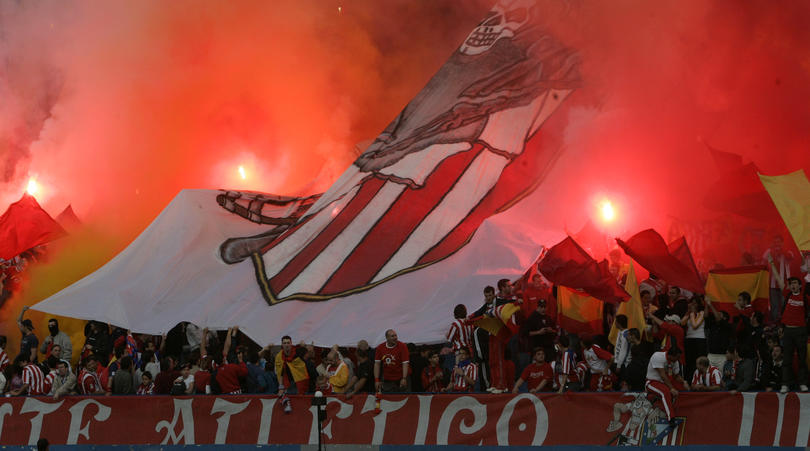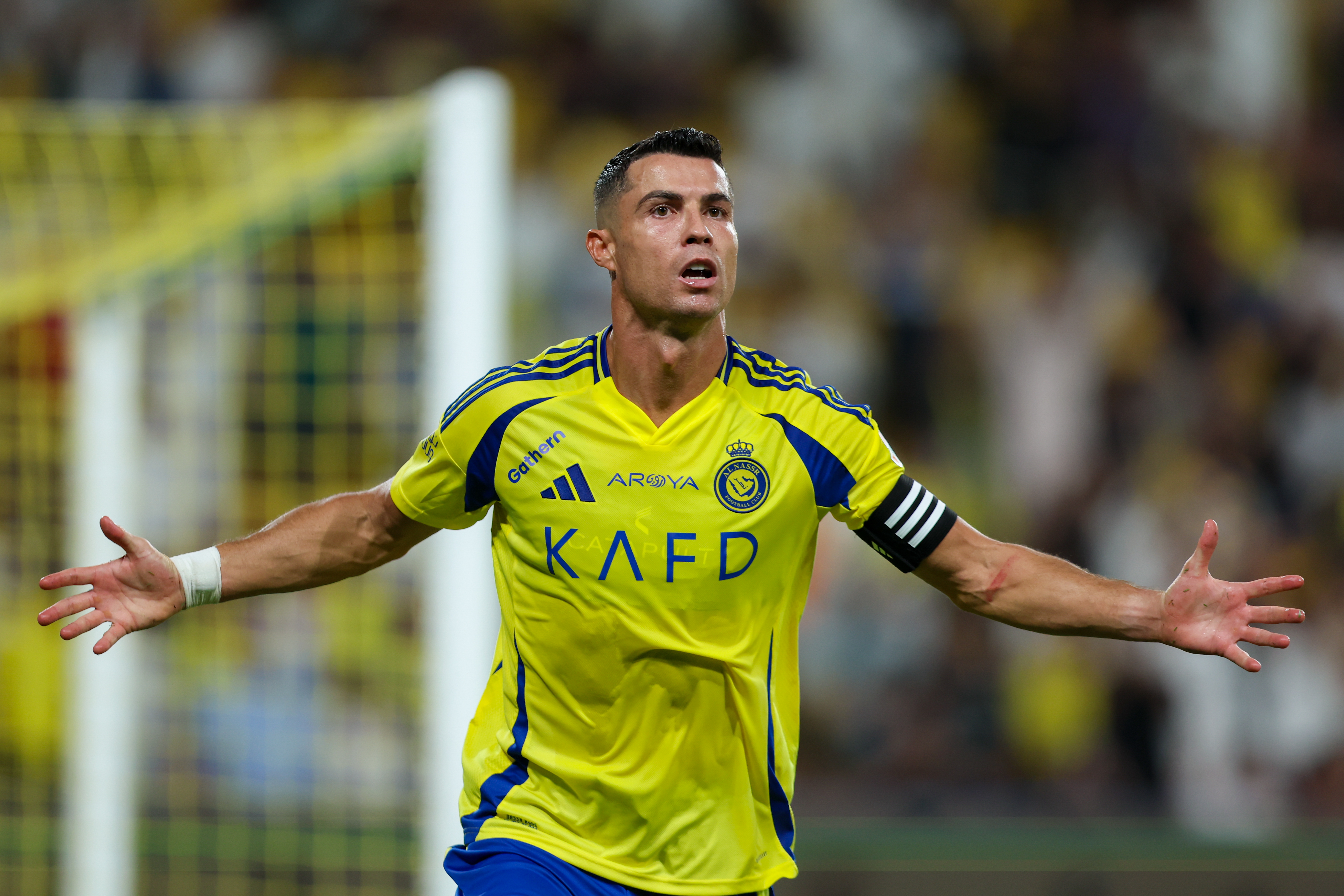Jan Oblak exclusive: "For sure, numbers like mine aren’t normal in modern football..."
Oblak’s record for Atletico Madrid is so good it can look like a typo – so it's probably a good job he doesn't bother trying to count, as he tells FFT's Chris Flanagan
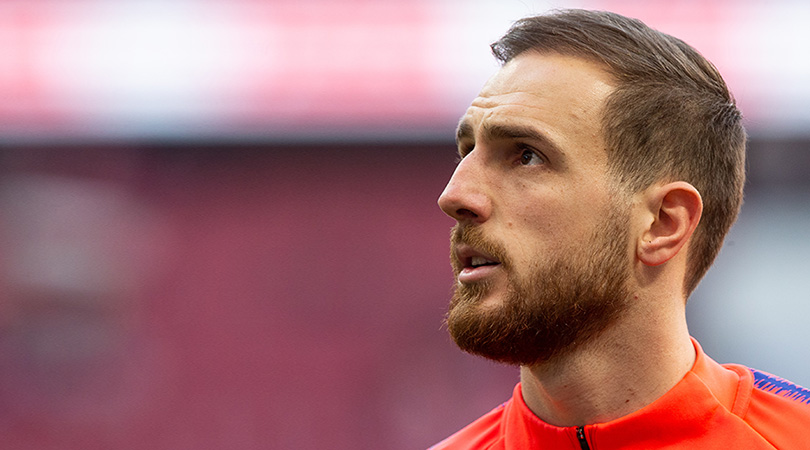
Even Jan Oblak can’t quite believe his own statistics as he sits in front of FourFourTwo.
“For sure, the numbers are really crazy,” he says with a nervous laugh.
When he recently racked up his 100th clean sheet for Atletico Madrid, it came in just his 178th appearance for the La Liga side. “I wasn’t counting,” he insists. “But I was very happy when they told me. Numbers like that aren’t normal in modern football.”
It’s little wonder the Slovenian has picked up award after award over the past few seasons. When we meet on a sunny autumn day in Madrid, he has just returned from Barcelona and a ceremony to receive yet another gong: a third consecutive Zamora Trophy, given to the goalkeeper who boasts the lowest goals-to-game ratio.
Yesterday he was chatting to La Liga’s player of the year Lionel Messi; today it’s FFT. “We congratulated each other on our trophies and were joking about our league match against Barcelona,” he says, referring to a 1-1 draw at the Wanda Metropolitano in which Messi set up Ousmane Dembele to score a late equaliser. “We know each other well. We’ve played a lot of games against each other now.”
And collected a lot of awards together, too.
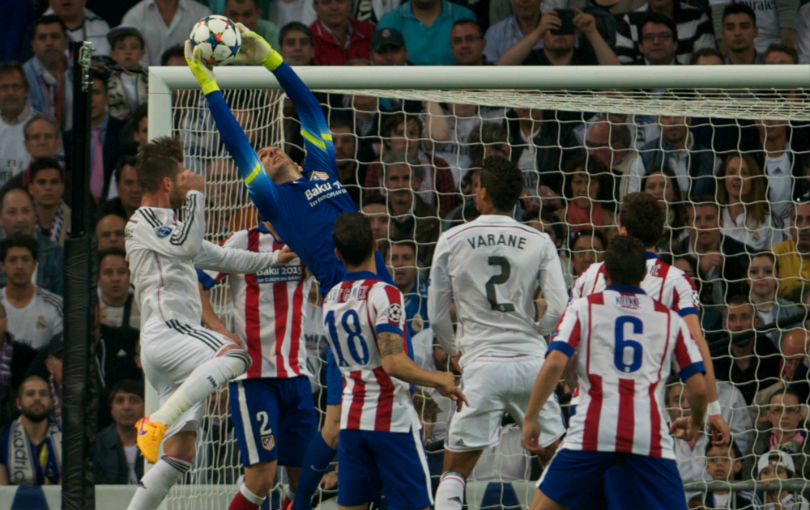
Back from Barcelona, Oblak has spent the morning at Atleti’s training base in Majadahonda, a leafy district 16 kilometres to the north-west of Spain’s capital with the snowy peaks of the Guadarrama mountains glistening in the distance.
The best features, fun and footballing quizzes, straight to your inbox every week.
Bulky assistant manager German Burgos has been busy stalking the pitches like the world’s most intimidating groundskeeper, and is soon joining forces with Diego Simeone, who’s studiously watching on as the squad are put through their paces.
When his morning’s work is complete, Oblak wanders into the club’s media centre to meet FFT. The gloveman’s valuation may have soared to £90 million in recent months, but there isn’t the slightest trace of ego about him as he says hello and briefly appears a little uncertain about where to sit. “Here?” he asks, eager to treat us with exactly the same respect as he’d treated Messi 24 hours earlier.
Oblak doesn’t give many interviews: he’s never been one to seek the limelight, content to let his performances do the talking, but his story is worth listening to. Regarded by some as the best goalkeeper in the world, the route from Slovenia’s sleepy hills to the top hasn’t always been straightforward – even if his inspiration came very early in life.
In his father's gloves
“I grew up in a small place called Skofja Loka – it’s the second-oldest town in Slovenia,” explains Oblak. “There’s a small club there, where my father played. He wasn’t a professional, it was an amateur team, but he was the goalkeeper. He was my first idol.
“I would always watch him. When he was at training, I would stand behind his goal and dive to the side that he was diving. I don’t know how old I was, maybe three or four. Everyone found it really funny – they were laughing because this small kid was behind the goal diving when his father dived, without the ball, just doing the same as him. I wanted to be like him.”
It was at one of his father’s games that his talent was first spotted. “He was playing indoor football in Ljubljana in the winter,” says Oblak. “I was eight or nine then, and at half-time I’d often play football with my sister. She was three years older than me and good at football – she would shoot and I’d go in goal. I was diving around and making saves, and someone from Olimpija Ljubljana noticed me and invited me to join them. They’re the biggest club in Slovenia, so as a kid that made me very happy.”
Oblak, whose sister is now a basketball international, impressed on trial and joined Olimpija’s youth setup, although just attending training was a challenge over the next few years. “I lived 30 kilometres away and it was very difficult to get there,” he says. “My mother and father made a lot of sacrifices to help as much as they could – they tried to change their working hours so they could drive me there.
“But sometimes my father had to go to work and couldn’t take me. Often I would ride my bike – 30 kilometres there, 30 kilometres back. At the beginning I wasn’t thinking much and just went crazy on the bike to training. I was tired when I got there! My best time was about an hour, but I knew that wasn’t the best way to prepare for playing well. I had to ride normally, so that took me about an hour-and-a-half.
“My wish, my dream, was to become a footballer. I wanted to be a goalkeeper - I wanted to be the best in the world. Since I was young, I had these dreams.”
"This kid is better than me"
But there was a further complication: Olimpija went bust in 2005, although the club quickly reformed. When Oblak was 16, regular keeper Robert Volk realised that the teenager was ready to play. “This kid is better than me,” said the 43-year-old veteran, sacrificing his own place to give the youngster a chance.
“I started really fast,” reveals Oblak. “I started to train with the first team when I was 15, and the club were in the second division when I made my debut because they’d had some financial problems. Then we went back to the first division and I played regularly.”
He soon flourished, displaying a wise head on very young shoulders – a quality that has served him well to this day. “Since I was 16 or 17, my head was always thinking differently to how my friends thought – I was more mature,” says the man who turned 26 in early January. “Even now, I feel more mature than my age – in my head, I feel like I’m 40! It’s important for a goalkeeper to be mature and calm. With that, you can achieve more.”
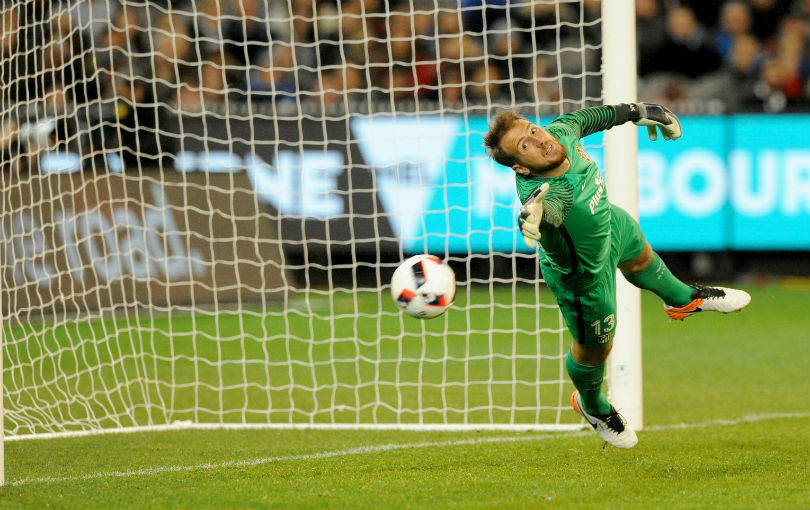
The next step of Oblak’s career turned out to be the hardest. If he wanted to be one of the best custodians in the world, the biggest opportunities lay outside of Slovenia.
He joined Benfica in 2010 – a year after spending some time in London, training with Fulham. “I was there for a week,” he explains. “When I went to Fulham, it wasn’t my wish to go there and sign. I was young and just wanted to see how things were in other countries, as Slovenia isn’t known for football. I wanted to see how people worked. In the end, we didn’t even speak about the chance to sign.”
Move to Portugal
When the move to Benfica came about, he found it tough to adjust to a new country and a paucity of match action – loaned to Beira Mar, he often didn’t make the substitutes’ bench. He’d spend much of his time on the phone to family members.
“It was very hard,” admits Oblak. “I was 17. I’d had a great season in Slovenia and started to play, so it wasn’t easy to leave. But I made a decision. If I really wanted to do something, this was my big chance.
“It was tough at the beginning in Portugal. It’s another life, with new people and another language you don’t know how to speak. Life was complicated, but professionally it was the right move for me because I was improving myself. I went there for the football, not to improve my life. Then after a few months, my father came to stay for a while to help me settle.”
In the most difficult moments, did he ever consider quitting Portugal and going back to Slovenia? “No, never,” he says. “To quit and go back home? I’d never have done that. I’d seen many players do that before – they went to another country then came home, and I always asked, ‘Why would they do this? They’ve been given a great opportunity’. But when I was there and experiencing it for myself, I realised it’s not easy. Not everyone can handle it, but I was never tempted to return home.”
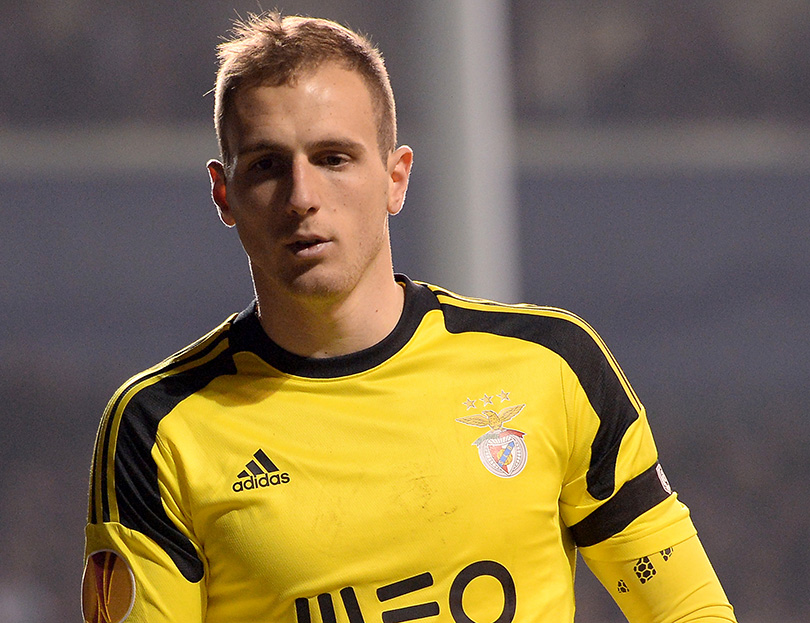
Perseverance paid off. After another bench-warming role on loan at Olhanense, he got some game time at Uniao de Leiria, before further proving himself under the tutelage of Nuno Espirito Santo at Rio Ave.
By the time his fourth season in Portugal kicked off, he was ready to challenge for a place at parent club Benfica. Within seven months of his league debut, Oblak had lifted a domestic treble, helped the club reach the Europa League final and secured a €16m move to Atletico Madrid, making him the most expensive goalkeeper in La Liga history.
“That was special,” he says of a campaign in which he kept 13 clean sheets in 15 league starts. “I was still young, I was fighting for a place, and in the first part of the season didn’t start matches. In December, I began to play and it was a great half season.”
Few moments were more special than a Europa League semi-final second leg shutout against a Juventus side featuring Gianluigi Buffon, a keeper he’d admired since he was young. “When I was growing up it was my father I looked at, and you also see the best keepers in the world,” says Oblak. “I liked Iker Casillas and Buffon, so it was a great feeling when I got to play against them. Juve had a great team, but we won 2-1 at home, then drew 0-0 away. They’re great memories.”
Struggles in Madrid
If Oblak’s early days at Benfica were tough, his first few months at Atletico Madrid weren’t easy either. Before he’d even made his debut for Los Colchoneros, there was a bizarre interlude as Benfica president Luis Filipe Vieira claimed they had been offered him back. “We don’t want him,” insisted Vieira, although Atletico have always denied that any such conversation took place.
“I didn’t believe it and I still don’t believe those words,” says Oblak of Vieira’s snub. Then, when he made his Atletico bow in September 2014, he conceded three goals in a 3-2 loss at Olympiakos and didn’t feature in La Liga or the Champions League again until March 2015.
It was a surprise considering he’d been recruited as the replacement for the departed Thibaut Courtois. They were big shoes to fill.
“Everyone was saying that, asking, ‘How do you feel? Are you under pressure?’” he says of those early Courtois comparisons. “I always said I wasn’t a substitute for anyone. But at the beginning I wasn’t ready as I had an injury in pre-season and Miguel Angel Moya, a great friend of mine, started to play well.
“I was waiting for my opportunity for a long time. It was difficult to be on the bench, but I knew my five minutes would come and I could show everyone they were wrong to speak badly about me. They didn’t know me – I hadn’t had the chance to show them what I could do.”
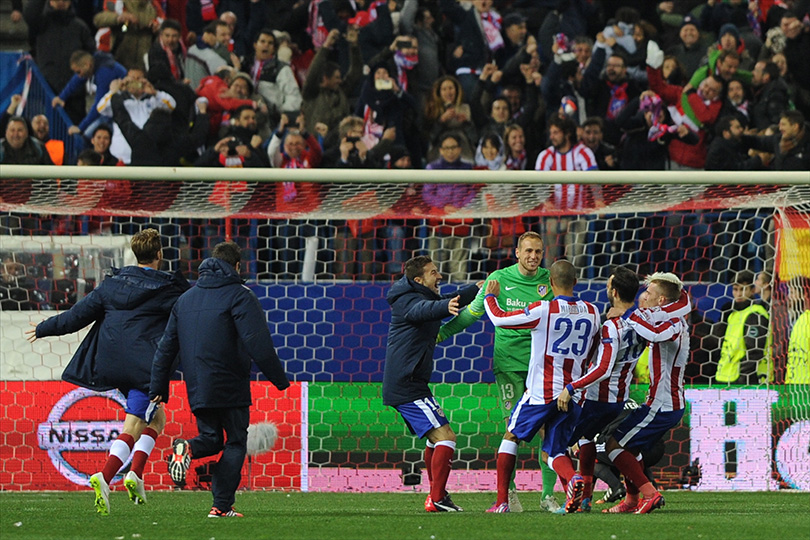
His opportunity came in the Champions League last 16, at home to Bayer Leverkusen. “That game changed my life,” he says. Atleti were trailing 1-0 on aggregate when Oblak replaced the injured Moya just 23 minutes into the second leg at the Vicente Calderon. He thwarted Die Werkself as Atletico took the tie to penalties, then denied Hakan Calhanoglu in the shootout. Simeone’s side were through, and Oblak has been Atletico’s first choice ever since.
“It was a huge moment for me,” he reflects. “It was unlucky for my team-mate that he got injured, but in our case it’s like that – normally it’s not the beautiful way when another goalkeeper gets their chance. I saved the penalty, we got through and it changed my career.”
He’s displayed his talents time and again in the Champions League, saving Thomas Muller’s spot-kick at the Allianz Arena to help Atletico reach the 2016 final.
“That game was crazy,” he admits. “We’d won 1-0 at home, but we went there and Bayern were pressing – we didn’t pass the halfway line. They scored a strange goal from a free-kick that deflected in off Jose Maria Gimenez. They were pressing again and then came the penalty. In that moment I knew it – as I stood there, I said to myself, ‘I need to stop this penalty. If I don’t stop it, they are going to kill us’. Luckily I stopped it, we equalised thanks to Antoine Griezmann and got to the final. It was an amazing night.”
"The saddest day of my life"
However, Atletico lost to Real Madrid in Milan, a second Champions League final defeat to their rivals in three years. Losing on penalties, Oblak’s forte, made it even more agonising.
“The final was the saddest day of my life,” he says. “It was penalties again: in the semi-final I’d saved one, we’d also beaten PSV in the last 16 on penalties, and against Leverkusen the year before. But then we lost the final to Real Madrid.
“I was sad that I couldn’t stop any of them. I did my research but it also depends on the players – maybe they do things differently and shoot to the other side. You’re sad for days, but you cannot stop there. That’s not the end of your career. It’s one game – a big game, a final – but I’m sure there will be another opportunity to win the Champions League. You have to keep working.”
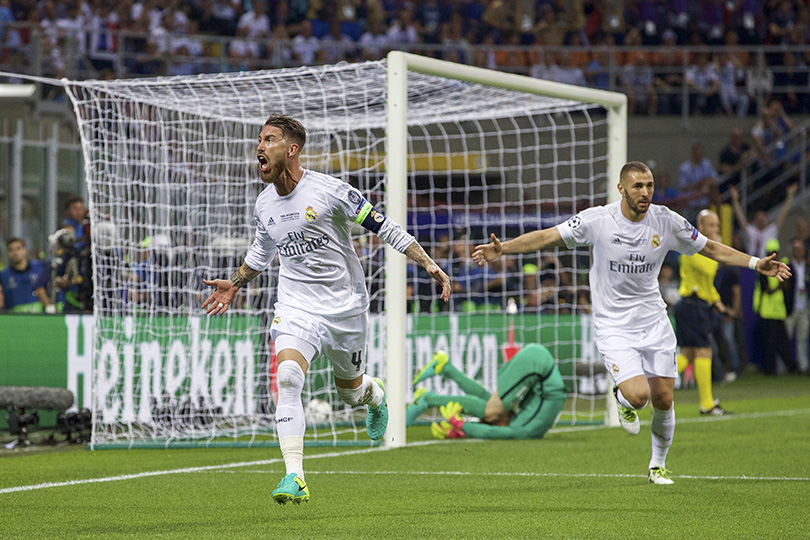
If he sees Cristiano Ronaldo’s winning penalty on television, does he turn away? “No, I can watch it, I’ve passed that stage now,” he says. “You can ask, ‘Why did I go to the right? Why didn’t I go to the left?’ But I’m not asking myself that, because it’s always easy to be smart afterwards. You do your best and try to go the right way, but it’s hard.”
The Champions League has eluded the Slovenian so far, but Atletico won the Europa League last season and followed that up with victory over Real Madrid in the UEFA Super Cup. For all of his clean sheets, it’s trophies that Oblak really craves. “The most important thing is to win games and titles,” he says. “I’m proud to have won awards, but first of all I want collective trophies, not just individual ones.”
Red-and-white wall
It’s that emphasis on the collective that has helped Oblak to keep so many clean sheets – it’s essential to Atletico’s very ethos. Such is their defensive organisation under coach Simeone, no team in world football is harder to score against.
Last season Atleti conceded only 22 goals in 38 league games. The season before that it was 27, and in 2015/16 they let in just 18 goals. Oblak’s assured presence and virtually faultless displays have played a key part in that record.
“We know that if we defend well and are together, we can achieve something,” he explains. “If we do it by ourselves, not as a team, it’s complicated. We see some games where we didn’t do things like we needed, and it becomes complicated for us.
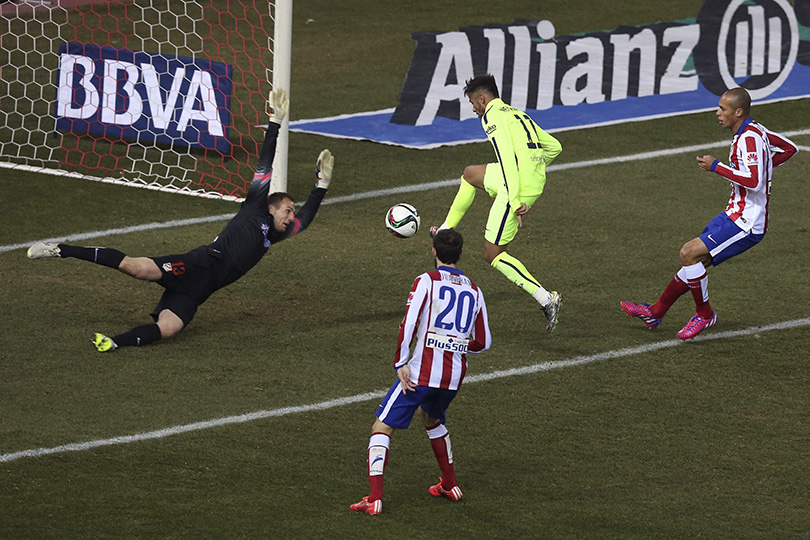
“We always work on our defects at training – we don’t just close our eyes and think it’s going to be better. The manager is great tactically and really good at motivating the players, too.
“We know from our experience that if a team scores against us, it’s not easy to turn the game around and win – it’s much easier for us if we keep a clean sheet.
“We’re not known for scoring lots: we want to score 200 goals but it’s not always possible, so it’s important to keep a clean sheet, then you have a bigger chance to win. We always need to be 100 per cent concentrated on every single detail, then we are dangerous. We can beat everyone, for sure.”
Stopping Messi
Oblak kept award ceremony pal Messi off the scoresheet in Atletico’s 1-1 draw with Barcelona in November, and the pair’s on-field duel has been even so far – in 12 encounters, the Argentine has found the net in six and the shot-stopper has thwarted him in six.
Asked if he’s tried to develop any techniques to deny the diminutive magician when the pair go head to head, Oblak smiles. “There are no techniques you can practise against Messi,” he chuckles. “It’s hard to stop him. You can’t learn what he’s going to do in different situations, because you never know.”
Surprisingly, Oblak has only 18 caps for Slovenia despite making his debut in 2012. Inter’s Samir Handanovic held the No.1 shirt for many years before deciding to retire from international football in 2015, and the Atletico man took a break from national team duties during the UEFA Nations League to address an arm complaint he’d been battling early in the campaign.
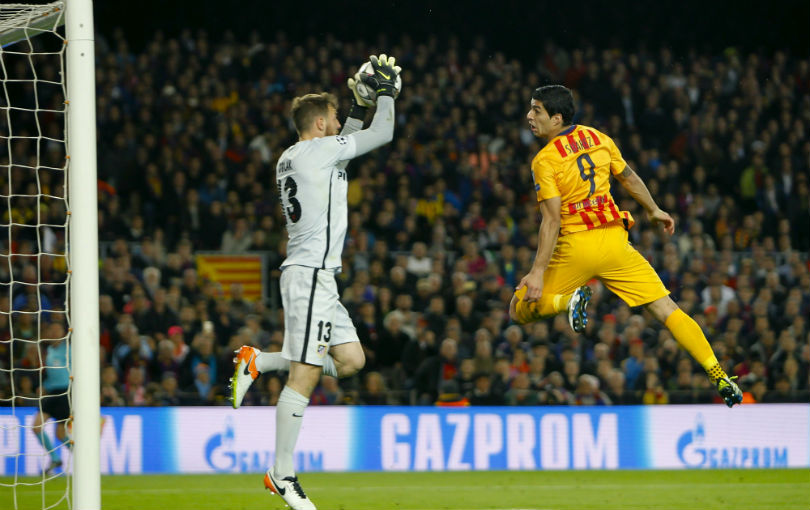
He intends to be back for the Euro 2020 qualifiers in March, though Slovenia haven’t reached a major tournament since 2010 and Oblak’s absence from last summer’s World Cup probably cost him a place on the three-man shortlist for FIFA’s goalkeeper of the year, comprised of Thibaut Courtois, Hugo Lloris and Kasper Schmeichel. All three men made significant contributions in Russia.
“I really hope to play at the European Championship and World Cup – that’s one of my dreams,” says Oblak, who will battle Poland, Austria, Israel, Macedonia and Latvia for a spot at Euro 2020. “Everyone knows it won’t be easy, but if things go well and there’s a good atmosphere, any country can achieve those goals. Just look at Iceland.”
Although he missed the 2018 World Cup, Oblak was among the 30 Ballon d’Or nominees for a second year in succession. “That’s a great thing – proof that I’m going in the direction,” he says, while conceding that it will always be tough for a goalkeeper to win the award.
“That’s normal, as people like to see players scoring goals instead of stopping them,” he reasons. “Goals make the game interesting, so us keepers are doing something that many people don’t like. OK, fans of your club like it, but no one else!”
Turning down the Prem
Atletico fans appreciate the job Oblak has done for the Colchoneros, and he was the subject of transfer speculation in June when several clubs were on the lookout for a new goalkeeper.
Liverpool boss Jurgen Klopp confirmed his interest prior to Alisson’s arrival at Anfield, yet it was Chelsea who reportedly came the closest to landing the 6ft 2in Slovenian. Before bagging Kepa Arrizabalaga for a world-record £71.6m from Athletic Bilbao, the Blues were believed to have met the £90m release clause in Oblak’s Atletico deal. He would have replaced Courtois, just as he’d done at his current club.
“I can’t talk too much about that,” he says, reluctant to get into the details of why a potential switch to Stamford Bridge fell through. “But for sure I said in the summer that I’d prefer to stay here. I didn’t speak with any other clubs – my agent and the people at Atletico Madrid do those things. I decided to stay because I saw a good project here, and I believe the best way I can win titles is by staying.
“But in the future, everything is possible. In football, things change from one day to another so it’s impossible to say you’re going to be somewhere for many years, because you don’t know. January is here, June is there. Things can change so fast.
“The Premier League is interesting. It’s attractive and at some stage I may want to be part of that competition. I can see myself there, but I don’t know when – maybe next year, in two years, five or 10.”
Right now, Oblak is enjoying life at Atletico, and the faith Simeone has shown in him is a major reason why. The coach recently insisted that despite Courtois’ fine performances during their time together in the Spanish capital – winning the La Liga title in 2013/14 – he’d now choose Oblak over the Belgian.
“It’s always great to hear that, from him or anyone,” admits Oblak. “He’s my coach and I’m glad he thinks that. There are many opinions: for some I’m the best, for others someone else is. I’ll just keep working and improving – the more people see it like that, the happier I’ll be.”
Does he think he’s the best? “I can’t answer that,” he says. “I’ll leave it to others to say. But I’m working towards that: to be the best.”
He’s been working towards it ever since those days when he made the 60-kilometre round trip on his bike to training, even the days when he stood behind his father’s goal, copying every movement. Back then, people laughed. Little did they realise, they were watching Oblak’s first steps on his journey to the top.
This feature originally appeared in the February 2019 issue of FourFourTwo.
NOW READ… Year Zero: the making of Fernando Torres (Atletico Madrid, 2002/03)
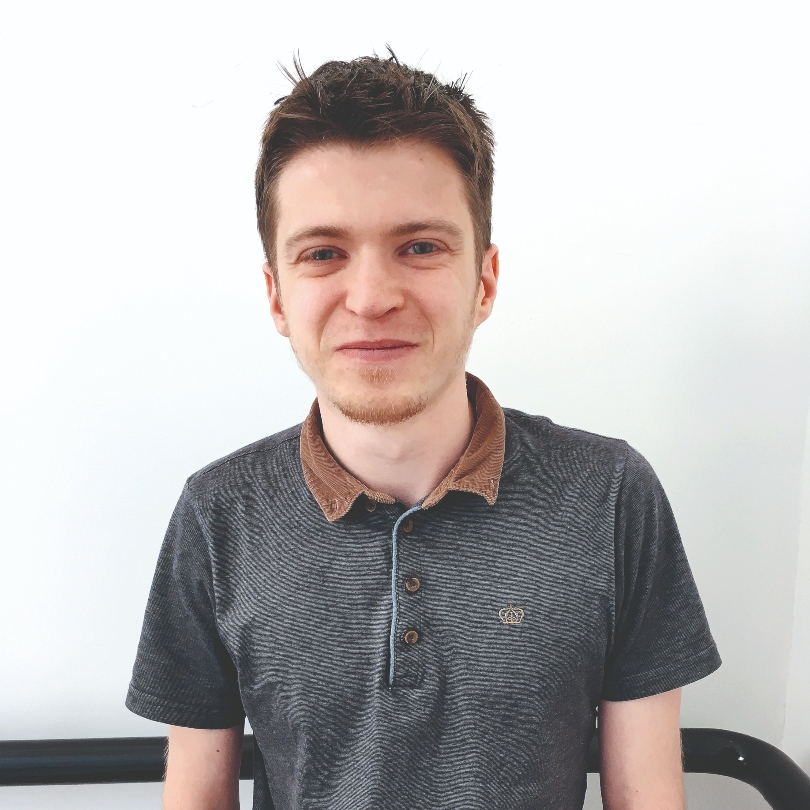
Chris joined FourFourTwo in 2015 and has reported from more than 20 countries, in places as varied as Ivory Coast and the Arctic Circle. He's interviewed Pele, Zlatan and Santa Claus (it's a long story), as well as covering the World Cup, AFCON and the Clasico. He previously spent 10 years as a newspaper journalist, and completed the 92 in 2017.
 Join The Club
Join The Club





